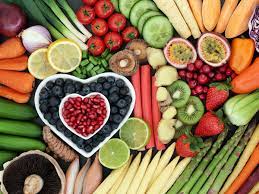There are many myths around a vegan diet; one of the biggest being that it does not provide one with enough protein, calcium, iron, and vitamin D. However, nutritionists believe otherwise.
“If you are a vegan and an aspiring athlete, or an athlete who wants to adopt a vegan diet, here are some things for you to keep in mind when designing your diet,” said Haripriya N., executive nutritionist at the Cloudnine Group of Hospitals, Chennai.
Common myths about a vegan diet for athletes
The nutritionist said that it is essential to remember that “a well-planned, supplemented, and diligently implemented vegan diet is compatible with competitive sport and promotes a good state of health with no risk of developing nutritional deficiencies. So, it is a myth that a vegan diet fails to support optimal performance in athletes.”
“Plant-based diets, which are typically low in saturated fat, high in complex carbohydrates, fiber, and nutrient rich in nature can help to regulate and reduce body fat percentage which is associated with increased aerobic capacity. This has been proven to improve their endurance resulting in better performance in the field,”
It is also a myth that those on a vegan diet don’t get enough protein, she continued. Although a vegan protein intake of 10-12 per cent is lower compared to non-vegans, it is still adequate to match the even higher protein needs of the heavily-burdened metabolism of athletes. “These values, ranging from 8-15% of daily energy, can be easily met and have been described as being adequate to benefit health and athletic performance,” she added. Some excellent sources are soy, millets, tofu, whole pulses, sprouts, chickpeas, lentils and quinoa; these are excellent sources of protein which also boost your micronutrient intake.
“So, vegans need to slightly increase their daily protein intake compared to non-vegans to achieve essential amino acids needed for the protein turnover and recovery,” she suggested.
Achieving micronutrient sufficiency is an important concern for all athletes. Attention should be paid to achieving adequacy in vitamin B12, iron, zinc, calcium, iodine and vitamin D intakes when designing a vegan diet in particular. These nutrients are naturally low in vegan foods but can be combined or supplemented based on requirement.
It is also a myth that vegan diets harm recovery. “In fact, the opposite is true. Balanced vegan diets are abundant in phytonutrients and antioxidants which are especially helpful for recovery as they fight oxidative stress and reduce exercise induced muscle damage, which causes inflammation, soreness and fatigue 24 – 74 hours post exercise,” she said.
As long as you have a healthy, balanced diet, training as a vegan is no different to regular training aside from the potential increased recovery and energy levels.
Healthy sources of protein for vegan athletes
The optimisation of protein intakes for vegan athlete requires attention to be to the quantity and quality of protein consumed. Common examples of the limiting amino acids in plant-based proteins include lysine, methionine, isoleucine, threonine and tryptophan. Of these, lysine appears to be to be most commonly absent, particularly from cereal grains.
Foods such as beans and legumes are rich sources of lysine, however, and leucine can be obtained from soy beans and lentils. Other BCAAs can be found in seeds, tree nuts and chickpeas, meaning that these amino acids can be obtained by consuming a variety of protein-rich, plant-based foods.
Foods such as grains, legumes, nuts and seeds should be included in the vegan diet to ensure that all essential amino acids are present.
Examples of high-protein vegan-friendly foods and their protein offering per 100gm, according to Haripriya N
Pumpkin seeds (dried, uncooked) – 30.2
Lentils (red, split, uncooked) – 24.6
Black beans (uncooked) – 21.6
Almonds (raw) – 21.2
Tempeh – 20.3
Tofu – 17.3
Oats (rolled) – 16.9
Quinoa (uncooked) – 14. 1
*Source: Nutrient values from USDA food composition table.(TheIndianExpress)





